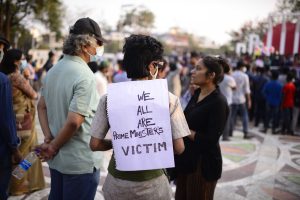When the Awami League came to power in Bangladesh after winning a landslide victory in the 2008 general election, the party promised a modern, progressive, and free democracy for the people. But over the course of the last 14 years, the ruling government has instead chosen to consolidate its hold over the democratic institutions of the country through rampant large-scale corruption and a ruthless suppression of dissent.
With the next general elections poised for January 2024 – elections that the Awami League is expected to win, securing a fourth consecutive term – the government is under pressure to honor its end of the bargain by holding a long-promised free and fair election. But the ruling party’s revenge-fuelled politics, oligarchy-leaning policies, and growing authoritarian tendencies make it difficult to expect one.
Strong Economic Growth Against Rising Inequality
Since Prime Minister Sheikh Hasina’s government came into power, Bangladesh has achieved tremendous economic and social development. According to World Bank figures, the national GDP stood at $416.3 billion in 2021, compared to just $6.2 billion at the time of independence in 1971. And that growth continues, with Bangladesh’s GDP expected to be double the current size by 2030.Life expectancy has increased to 72.4 years as of 2022; infant mortality rates have decreased significantly. Tremendous progress has been made in educating girls and women – more girls are now enrolling in secondary level schools than boys, and 98 percent of all children are completing at least a primary level of education. The nation’s per capita income is currently the second largest in South Asia, just shy of India’s, and mega infrastructure development has been the ruling party’s poster material for years.
But this enviable success comes on the back of growing inequality. Data from the Bangladesh Bureau of Statistics show that income inequality in the country has deepened in the past six years. According to the World Inequality Report 2022, just 1 percent of the population holds 16.3 percent of wealth in Bangladesh.
The consolidation of wealth by a saturated section of society has effectively created a system of oligarchs with considerable political influence. For example, in 2020, cartoonist Ahmed Kabir Kishore was arrested by the notorious Rapid Action Battalion (RAB) and then sued under the draconian Digital Security Act (DSA) for defaming the government. Sources close to him, however, allege that the arrest was influenced by a politically well-connected businessperson based out of Dhaka whom Kishore had depicted in a satirical cartoon.
Kishore was tortured and served 10 months in prison. His cellmate, Mushtaq Ahmed, who also faced charges under the DSA, died in custody in 2021.

































